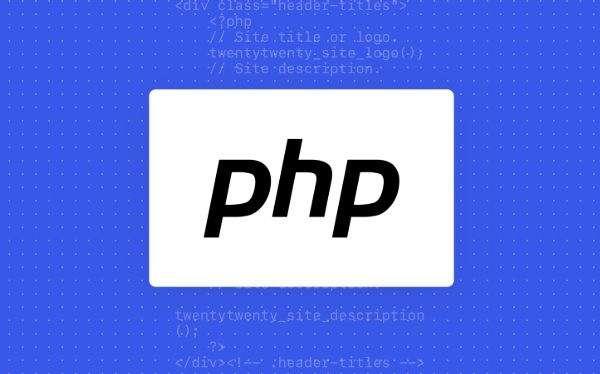現代PHP中的高級內存管理技術
现代PHP在性能和内存效率方面已显著提升,但高负载应用仍需优化内存使用。1. 理解PHP的内存模型:PHP通过引用计数和循环垃圾回收管理内存,变量存储在zval中,引用归零时释放内存,循环引用需垃圾回收器处理,可使用memory_get_usage()和memory_get_peak_usage()监控内存。2. 减少不必要的变量驻留:及时unset大变量,避免滥用全局或静态变量,合理使用局部作用域让变量自然退出。3. 流式处理大数据而非全量加载:使用生成器逐条处理数据,如readLargeFile函数配合yield降低内存占用;数据库查询使用PDO::CURSOR_FWDONLY实现逐行获取。4. 优化对象使用:避免频繁创建小对象,优先使用数组或stdClass传输简单数据,减少深继承和魔法方法对性能的影响。5. 启用OPCache和realpath缓存:配置opcache.enable=1等参数缓存字节码,减少重复解析开销,提升性能并降低内存压力。6. 针对长生命周期进程特殊处理:在Swoole等常驻内存环境中限制worker处理请求数,定期重启,监控内存使用,避免静态缓存无限增长,并借助blackfire.io等工具排查内存泄漏。总之,应结合PHP内存机制,通过流式处理、及时释放、作用域控制和缓存优化,编写可预测且可扩展的高效代码,防止高负载下崩溃。

Modern PHP has evolved significantly in terms of performance and memory efficiency, especially with the introduction of PHP 7 and later improvements in PHP 8. While PHP handles memory management automatically through garbage collection and reference counting, high-performance applications—especially long-running processes, APIs, or CLI scripts—can benefit from advanced memory management techniques. Here's a practical look at how developers can optimize memory usage in modern PHP.

1. Understanding PHP’s Memory Model
PHP uses a reference-counting system combined with a cycle garbage collector to manage memory. Every variable is stored in a zval (Zend value container), which includes type, value, and a reference count.
- When a variable is assigned or passed, PHP increases the reference count.
- When the reference count drops to zero, the memory is freed.
- Circular references (e.g., object A references B, and B references A) won’t be cleaned up immediately unless the garbage collector runs.
Key Insight: PHP doesn’t use traditional garbage collection like Java; instead, it relies on deterministic cleanup via reference counting, with periodic cycle detection.

To monitor memory:
echo memory_get_usage() . " bytes\n"; echo memory_get_peak_usage() . " bytes\n";
Use these to profile scripts and identify memory spikes.

2. Reduce Unnecessary Variable Retention
One of the most common causes of memory bloat is keeping variables in scope longer than needed.
Best Practices:
- Unset large variables explicitly when done:
$data = file_get_contents('large-file.json'); $parsed = json_decode($data, true); unset($data); // Free up memory - Avoid global or static variables unless necessary—they persist across requests in long-running SAPIs (like PHP-PM or ReactPHP).
- Use local scopes to limit variable lifetime:
function processBatch() { $hugeArray = range(1, 100000); // process... unset($hugeArray); // Helps if more operations follow }
Even better: structure code so variables go out of scope naturally.
3. Stream Large Data Instead of Loading Entirely
Loading large datasets into memory (e.g., big arrays, files, or database results) is a major memory killer.
Use Generators for Memory-Efficient Iteration
Generators yield values one at a time, keeping memory usage constant regardless of input size.
function readLargeFile($file) {
$handle = fopen($file, 'r');
while (($line = fgets($handle)) !== false) {
yield json_decode($line, true);
}
fclose($handle);
}
foreach (readLargeFile('big-data.jsonl') as $record) {
// Process one record at a time
}This uses kilobytes instead of potentially gigabytes.
For Databases:
- Use unbuffered queries (in PDO or MySQLi) to stream rows:
$stmt = $pdo->query("SELECT * FROM huge_table", PDO::CURSOR_FWDONLY); while ($row = $stmt->fetch()) { // process row }This prevents PHP from loading the entire result set into RAM.
4. Optimize Object Usage and Reuse
Objects in PHP carry overhead. Creating thousands of small objects (e.g., DTOs, entities) can fragment memory.
Tips:
- Reuse objects when possible (e.g., in pools or factories).
- Consider arrays or structs (via
stdClass) for simple data:// Instead of new UserEntity(), use: $user = ['id' => 1, 'name' => 'John'];
Arrays are lighter for basic data transfer.
- Avoid deep object hierarchies—each layer adds zval and hash table overhead.
Also, be cautious with magic methods (__get, __set)—they can prevent internal optimizations.
5. Leverage OPCache and Realpath Cache
While not direct memory management, OPCache reduces memory pressure by caching precompiled script bytecode.
Enable in php.ini:
opcache.enable=1 opcache.memory_consumption=256 opcache.max_accelerated_files=20000 opcache.interned_strings_buffer=16
Also, increase realpath_cache_size if your app uses many files:
realpath_cache_size=4096k realpath_cache_ttl=600
This reduces filesystem lookups and repeated parsing—freeing up CPU and memory.
6. Handle Long-Running Processes Differently
In traditional PHP (mod_php, FPM), memory resets after each request. But with Swoole, ReactPHP, or Amphp, processes live for minutes or hours—memory leaks become critical.
Key Strategies:
- Limit request counts per worker and restart workers periodically.
- Monitor memory per request:
if (memory_get_usage() > 50 * 1024 * 1024) { // Trigger graceful shutdown } - Avoid static caches that grow indefinitely:
static $cache = []; // Limit size or use LRU logic
Use tools like
blackfire.ioorxhprofto trace memory leaks in long-lived scripts.
Final Notes
Modern PHP is much more memory-efficient than before, but careless coding can still lead to high usage. The key is:
-
Profile early with
memory_get_usage(). - Stream, don’t load.
- Unset or scope-limit big variables.
- Use generators for large datasets.
- Tune OPCache and realpath cache.
- Be extra careful in long-running environments.
Memory optimization isn’t about squeezing every byte—it’s about writing predictable, scalable code that won’t crash under load.
Basically, work with PHP’s memory model, not against it.
以上是現代PHP中的高級內存管理技術的詳細內容。更多資訊請關注PHP中文網其他相關文章!
-
Profile early with

熱AI工具

Undress AI Tool
免費脫衣圖片

Undresser.AI Undress
人工智慧驅動的應用程序,用於創建逼真的裸體照片

AI Clothes Remover
用於從照片中去除衣服的線上人工智慧工具。

Clothoff.io
AI脫衣器

Video Face Swap
使用我們完全免費的人工智慧換臉工具,輕鬆在任何影片中換臉!

熱門文章

熱工具

記事本++7.3.1
好用且免費的程式碼編輯器

SublimeText3漢化版
中文版,非常好用

禪工作室 13.0.1
強大的PHP整合開發環境

Dreamweaver CS6
視覺化網頁開發工具

SublimeText3 Mac版
神級程式碼編輯軟體(SublimeText3)
 PHP變量範圍解釋了
Jul 17, 2025 am 04:16 AM
PHP變量範圍解釋了
Jul 17, 2025 am 04:16 AM
PHP變量作用域常見問題及解決方法包括:1.函數內部無法訪問全局變量,需使用global關鍵字或參數傳入;2.靜態變量用static聲明,只初始化一次並在多次調用間保持值;3.超全局變量如$_GET、$_POST可在任何作用域直接使用,但需注意安全過濾;4.匿名函數需通過use關鍵字引入父作用域變量,修改外部變量則需傳遞引用。掌握這些規則有助於避免錯誤並提升代碼穩定性。
 在PHP中評論代碼
Jul 18, 2025 am 04:57 AM
在PHP中評論代碼
Jul 18, 2025 am 04:57 AM
PHP註釋代碼常用方法有三種:1.單行註釋用//或#屏蔽一行代碼,推薦使用//;2.多行註釋用/.../包裹代碼塊,不可嵌套但可跨行;3.組合技巧註釋如用/if(){}/控制邏輯塊,或配合編輯器快捷鍵提升效率,使用時需注意閉合符號和避免嵌套。
 發電機如何在PHP中工作?
Jul 11, 2025 am 03:12 AM
發電機如何在PHP中工作?
Jul 11, 2025 am 03:12 AM
AgeneratorinPHPisamemory-efficientwaytoiterateoverlargedatasetsbyyieldingvaluesoneatatimeinsteadofreturningthemallatonce.1.Generatorsusetheyieldkeywordtoproducevaluesondemand,reducingmemoryusage.2.Theyareusefulforhandlingbigloops,readinglargefiles,or
 撰寫PHP評論的提示
Jul 18, 2025 am 04:51 AM
撰寫PHP評論的提示
Jul 18, 2025 am 04:51 AM
寫好PHP註釋的關鍵在於明確目的與規範,註釋應解釋“為什麼”而非“做了什麼”,避免冗餘或過於簡單。 1.使用統一格式,如docblock(/*/)用於類、方法說明,提升可讀性與工具兼容性;2.強調邏輯背後的原因,如說明為何需手動輸出JS跳轉;3.在復雜代碼前添加總覽性說明,分步驟描述流程,幫助理解整體思路;4.合理使用TODO和FIXME標記待辦事項與問題,便於後續追踪與協作。好的註釋能降低溝通成本,提升代碼維護效率。
 學習PHP:初學者指南
Jul 18, 2025 am 04:54 AM
學習PHP:初學者指南
Jul 18, 2025 am 04:54 AM
易於效率,啟動啟動tingupalocalserverenverenvirestoolslikexamppandacodeeditorlikevscode.1)installxamppforapache,mysql,andphp.2)uscodeeditorforsyntaxssupport.3)
 快速PHP安裝教程
Jul 18, 2025 am 04:52 AM
快速PHP安裝教程
Jul 18, 2025 am 04:52 AM
ToinstallPHPquickly,useXAMPPonWindowsorHomebrewonmacOS.1.OnWindows,downloadandinstallXAMPP,selectcomponents,startApache,andplacefilesinhtdocs.2.Alternatively,manuallyinstallPHPfromphp.netandsetupaserverlikeApache.3.OnmacOS,installHomebrew,thenrun'bre
 如何通過php中的索引訪問字符串中的字符
Jul 12, 2025 am 03:15 AM
如何通過php中的索引訪問字符串中的字符
Jul 12, 2025 am 03:15 AM
在PHP中獲取字符串特定索引字符可用方括號或花括號,但推薦方括號;索引從0開始,超出範圍訪問返回空值,不可賦值;處理多字節字符需用mb_substr。例如:$str="hello";echo$str[0];輸出h;而中文等字符需用mb_substr($str,1,1)獲取正確結果;實際應用中循環訪問前應檢查字符串長度,動態字符串需驗證有效性,多語言項目建議統一使用多字節安全函數。
 php獲得字符串的第一個N字符
Jul 11, 2025 am 03:17 AM
php獲得字符串的第一個N字符
Jul 11, 2025 am 03:17 AM
在PHP中取字符串前N個字符可用substr()或mb_substr(),具體步驟如下:1.使用substr($string,0,N)截取前N個字符,適用於ASCII字符且簡單高效;2.處理多字節字符(如中文)時應使用mb_substr($string,0,N,'UTF-8'),並確保啟用mbstring擴展;3.若字符串含HTML或空白字符,應先用strip_tags()去除標籤、trim()清理空格,再截取以保證結果乾淨。







